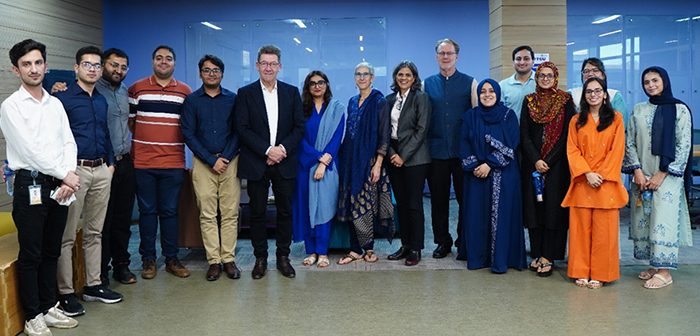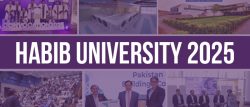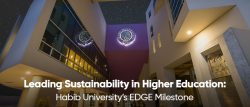The Habib Liberal Core (HLC) is the hallmark of Habib University’s curriculum, offering a unique interdisciplinary approach that fosters critical thinking, creative expression, and ethical leadership. Grounded in a postcolonial perspective, it seeks to restore the philosophical, spiritual, and ethical inheritance of regional traditions. Structured around seven diverse Forms of Thought, the HLC equips students with intellectual tools to navigate the complexities of modernity and connect academic learning to lived experiences.
With a focus on themes such as historical transformations, regional colonial legacies, and ethical engagement with societal challenges, the HLC reflects Habib University’s commitment to contextualized knowledge and interdisciplinary education. Courses like What is Modernity? and Pakistan & Modern South Asia (PAMSA) challenge students to confront historical injustices and develop a nuanced understanding of the modern world, preparing them to excel in their personal and professional lives.
To keep its liberal core courses relevant and impactful, Habib University undertakes comprehensive curriculum reviews guided by esteemed academics who bring unparalleled expertise and global perspectives to the task. The most recent review committee exemplifies this approach, comprising distinguished scholars recognized for their significant contributions to education, research, and interdisciplinary learning.
The committee is chaired by Dr. Thomas Hansen, Professor of Anthropology at Stanford University and this year’s Yohsin Lecture speaker. As Chair of the Liberal Core Review Committee, Dr. Hansen is advising on critically engaging with the enrichment and advancement of the curriculum. His extensive experience in anthropology and global education ensures a nuanced and thoughtful approach to the review.
Dr. Lynn Stein, Professor of Computer and Cognitive Science at the Olin College of Engineering and one of its founding members, contributes her expertise in interdisciplinary education and innovative pedagogy. Olin College, consistently ranked among the top undergraduate engineering institutions in the U.S., reflects her pioneering vision in higher education. Dr. Stein’s dual role as a member of Habib University’s Board of Governors further strengthens the university’s connection to global academic excellence.
Dr. Farina Mir, a historian specializing in colonial and postcolonial South Asia and a professor at the University of Michigan, Ann Arbor, brings essential historical and regional perspectives. Associated with Habib University since 2017, Dr. Mir plays a key role in ensuring the curriculum remains contextualized while maintaining critical global relevance.
Dr. Bryan Penprase, Professor of Physics and Astronomy and Vice President at Soka University of America, also lends his expertise to the review. Renowned for his work in global education models and interdisciplinary frameworks, Dr. Penprase’s input helps align Habib’s liberal core with innovative, forward-looking practices.
This review reflects Habib University’s unwavering commitment to academic rigor and intellectual growth. By fostering a culture of reflection and critique, the university ensures its programs remain dynamic and relevant while staying firmly grounded in its postcolonial context. Central to this approach is the principle of epistemic reparation, which seeks to restore and reclaim intellectual traditions marginalized by colonial histories, enriching the university’s academic framework.
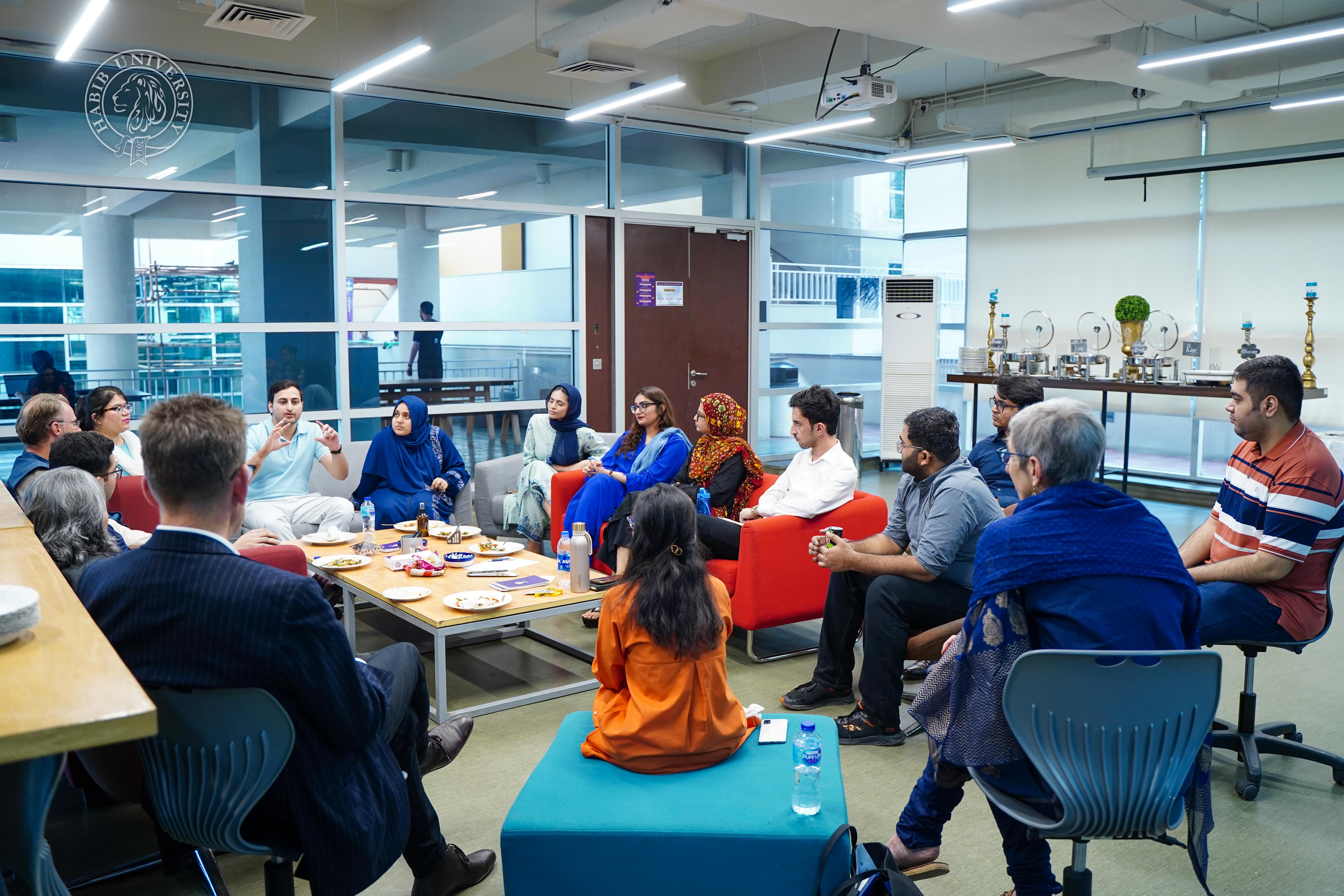
Building on this foundation, Habib University’s international academic partners—including Stanford University, Pitzer College, and Pomona College—play a critical role in these reviews. Their collaboration provides valuable insights and ensures the curriculum meets global standards while staying true to its aim of fostering contextualized and impactful education. This integrated approach reflects Habib University’s commitment to preparing critical thinkers who can navigate and influence a rapidly changing world.
Habib University’s approach emphasizes contextualized learning, where content is deeply rooted in local and global realities. This reflects a postcolonial ethos that seeks to address systemic challenges such as economic exploitation, social fractures, and the long-term impacts of colonial rule. By encouraging students to critically interrogate these issues, Habib University nurtures thinkers who can imagine and contribute to a more equitable future.
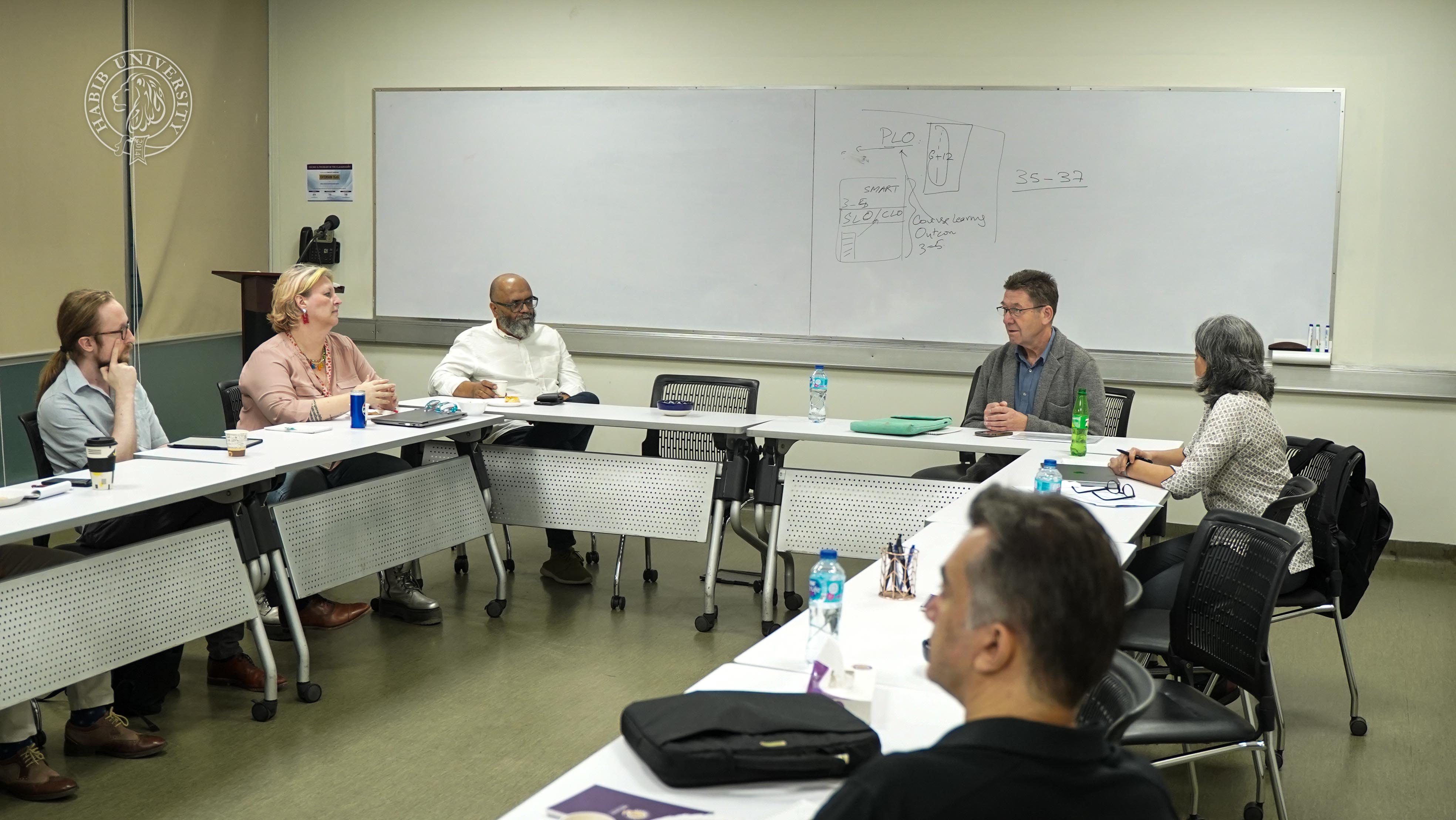
This innovative model has drawn praise from global academic leaders. Dr. Alexander Key, Chair of the Undergraduate Affairs Committee at Stanford University, remarked:
“We [Stanford University] can learn from Habib’s Liberal Arts model and especially the Liberal Core which says, if you (students) want to be an engineer, it’s good, but we will make sure to equip you with more options for future. You want students to leave after 4 years and be successful and the best way to do is to give them options for what they want to do with their lives for the next 10-20 years.”
Through ongoing curriculum reviews, collaboration with international academic partners, and a focus on addressing critical global and local challenges, Habib University continues to redefine liberal arts education. To learn more about the Habib Liberal Core and its transformative approach to education, visit the Liberal Core Page here.

